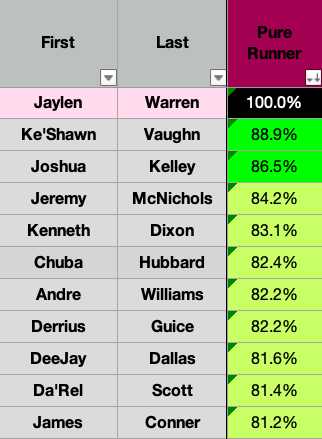Oklahoma State’s Jaylen Warren is the next subject in a series in which I evaluate 2022 rookie running backs solely on their ability to run the ball. The Breakout Finder installments can be found here. The PlayerProfiler installments can be found here. If you happened to already catch those and don’t need a refresher on my methodology, feel free to skip to the player-focused analysis.
The Player
Jaylen Warren actually spent four out of his five college seasons at educational institutions other than Oklahoma State, the one at which he happened to finish his career. According to Warren himself, he was unable to go the FBS route straight out of high school because he hadn’t previously taken his schoolwork seriously. His first two years of college were spent at Snow College in Utah. He then transferred to Utah State, where he played for two years before becoming a Cowboy in Stillwater, Oklahoma for the 2021 season.
The Metrics
At each of his three career stops, Jaylen Warren was one of the more efficient running backs on his team. At Snow, he outdid his teammates by 1.44 yards per carry on 299 totes. That’s about the degree to which Danny Woodhead exceeded his non-FBS backfield mates’ efficiency. And greater than the degree to which guys like James Robinson, Austin Ekeler, and Jerick McKinnon did the same thing.
At the FBS level, Warren carried the ball 407 times and maintained positive team-relative efficiency throughout his three seasons. He finished with a 0.72 YPC+ mark, in the 58th-percentile among running backs drafted since 2007. His Chunk Rate+ mark was also above-average, with his 1.10-percent landing in the 52nd-percentile.
Part of the team-relative rushing efficiency equation is the talent-level of the guys you’re being compared to. As well as the ease of travel you had on your carries relative to theirs. Warren played with teammates who averaged a 2.54-star rating (23rd-percentile) as high school recruits. And the box counts he saw were 0.05 defenders lighter than theirs (35th-percentile) on average. However, in accounting for those box counts, the average Warren carry was still worth 115.4-percent the output of the average non-Warren carry. Leading to a 51st-percentile Box-Adjusted Efficiency Rating.
Where Warren really shined was in the open field. He turned an 81st-percentile rate of his chunk runs into breakaways of 20+ yards. His career 38.0-percent Breakaway Conversion Rate is on par with the college rates of guys like Kenny Gainwell, C.J. Spiller, and Joe Mixon.
Rushing Efficiency Score and Comps
My process accounts for all the non-BAE metrics we’ve touched on here (in addition to overall team strength, offensive line play, rushing volume, and strength of opponent) in producing an overall Rushing Efficiency Score for running back prospects. According to that composite, Jaylen Warren earns a 53.0 out of 100. In a composite that does account for the box count-related metrics, he earns a 51.2.
I’m also able to generate comps. Accounting for the same metrics that go into the Rushing Efficiency Score (in addition to physical measurables), my comp machine generates percentage scores that describe how similar past prospects are to current prospects in the “pure runner” category. Assuming he runs a 4.50 40-yard dash at a projected 214-pounds and nearly 5-8, Warren’s top 10 comps are the following:
This is the part where I sideways eyes emoji at the quality of comps for a player who is getting almost zero buzz as a sleeper in this rookie class. If you liked Ke’Shawn Vaughn and Joshua Kelley (both of whom also spent five years in college, and Kelley started out at the non-FBS level, too), there’s no excuse for fading Warren, especially at cost.
Last Word
Jaylen Warren simply deserves more hype. He’s by no means a perfect prospect. But he’s a rocked up dude at sub-5-9 and 215-pounds. He was productive at three different college programs. And he was as efficient a college runner as some of your favorite sleeper runners of the past few years. Seeing as he got a Combine invite, the NFL is at least tentatively interested. In the late rounds of your rookie draft, you should be too.



